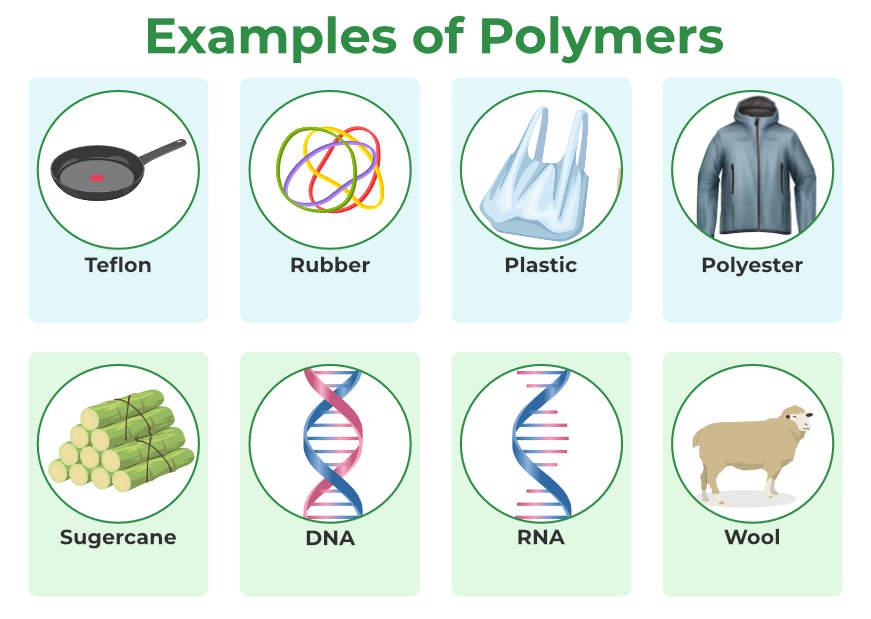High-Performance Polymers: Advanced Materials for Sector
High-Performance Polymers: Advanced Materials for Sector
Blog Article
Discovering the Varied Applications and Advantages of Polymers in Different Industries
Polymers, with their diverse variety of residential or commercial properties and performances, have become vital in various markets, each gaining special advantages from their application. Polymers. From improving safety and efficiency in the automotive field to reinventing clinical tools in the medical care market, polymers play an essential role. Furthermore, their green nature is altering the landscape of sustainability techniques. As we look into the midsts of polymers in electronic devices, we discover innovative technologies, while their structural integrity changes the realm of building and construction and framework. The prevalent influence of polymers throughout industries is a testament to their adaptability and adaptability, shaping the future of plenty of fields.
Automotive Sector Applications
Polymers play a critical duty in improving the efficiency and resilience of various parts within the auto industry. These flexible materials are thoroughly made use of in the production of different components, ranging from interior parts to under-the-hood applications. One prominent use polymers in the automotive sector is in the manufacturing of lightweight parts. By changing typical metal get rid of polymer-based choices, cars can attain enhanced gas effectiveness without endangering on toughness or security.

Health Care Sector Benefits
In numerous medical care applications, the advantages of making use of polymers are commonly acknowledged for their diverse variety of beneficial residential or commercial properties. Polymers play a crucial duty in the health care sector because of their flexibility, biocompatibility, and cost-effectiveness. One of the main advantages of polymers in health care is their ability to be customized to particular demands, such as flexibility, longevity, and biodegradability, making them ideal for a variety of clinical applications.
Polymer-based products are thoroughly made use of in medical devices, such as catheters, implants, prosthetics, and medicine delivery systems, as a result of their biocompatibility and capacity to imitate natural cells. These materials can decrease the risk of allergies or denials, improving individual safety and security and results. In addition, polymers are light-weight, making them suitable for wearable medical devices and making certain individual comfort.
Furthermore, polymers make it possible for the growth of innovative treatment approaches, such as hydrogels for tissue design and nanocomposites for targeted drug distribution. Their ease of handling and sterilization makes them crucial for preserving high standards of hygiene in healthcare setups. On the whole, the varied benefits of polymers contribute dramatically to developments in medical innovation and individual treatment.
Environmental Advantages of Polymers

Additionally, polymers can add to power cost savings due to their lightweight nature. In industries such as transportation, lightweight polymer products can help lower gas usage and greenhouse gas emissions. Furthermore, polymers can allow the development of energy-efficient products such as insulation products that improve power preservation in buildings.
Moreover, polymers play an important duty in reducing water contamination. For instance, the usage of polymer-based purification systems can efficiently get rid of contaminants and pollutants from wastewater, protecting water resources and environments. Generally, the ecological benefits of polymers make them valuable assets in advertising sustainability and environmentally friendly techniques throughout different industries.
Polymers in Electronics and Technology
Taking into consideration the raising demand for cutting-edge and lasting solutions in modern industries, the integration of advanced polymer modern technologies in the world of electronic devices and technology has actually become a crucial technique for driving efficiency and efficiency. Polymers have actually revolutionized the electronic devices market by making it possible for the production of lighter, a lot more versatile, and long lasting digital devices. From smartphones to clinical tools, polymers play an essential function in improving item layout and performance.
One substantial advantage of polymers in electronics is their insulating residential or commercial properties, which aid safeguard delicate electronic elements from environmental elements and electrical interference. Furthermore, polymers are essential in the growth of adaptable displays, wearable technology, try this site and published electronics, providing endless possibilities for producing clever and interconnected devices.
In addition, using polymers in digital product packaging has actually resulted in improvements in miniaturization and thermal monitoring, enhancing the total efficiency Home Page and reliability of digital systems. As modern technology continues to progress, the adaptability and adaptability of polymers will definitely drive additionally technology in the electronic devices market, forming the future of technology.
Function of Polymers in Building and Infrastructure
Polymers offer various benefits in the construction industry due to their flexibility, sturdiness, and cost-effectiveness. One key duty of polymers in building and construction is their use in layers and sealers, giving defense against environmental elements such as dampness, UV radiation, and rust.
In addition, polymers play an essential role in sustainable building and construction techniques by making it possible for the development of energy-efficient frameworks. Shielding materials made from polymers assist manage indoor temperatures, lowering the need for heating and cooling systems and inevitably lowering power intake. Moreover, making use of polymer-based composites in framework projects such as bridges and roadways boosts their long life and decreases upkeep expenses. Overall, the consolidation of polymers in building and construction and infrastructure showcases their significant effect on contemporary design methods.
Conclusion
Finally, polymers play an important duty in different sectors such as vehicle, health care, ecological, imp source electronics, and construction. Their flexible residential or commercial properties make them valuable in producing innovative services and items. From enhancing gas efficiency in lorries to improving clinical devices, polymers supply many benefits. Furthermore, their influence on minimizing waste and advertising sustainability highlights their importance in contemporary applications. The extensive use polymers demonstrates their substantial contribution to progressing technology and enhancing lifestyle.
Report this page